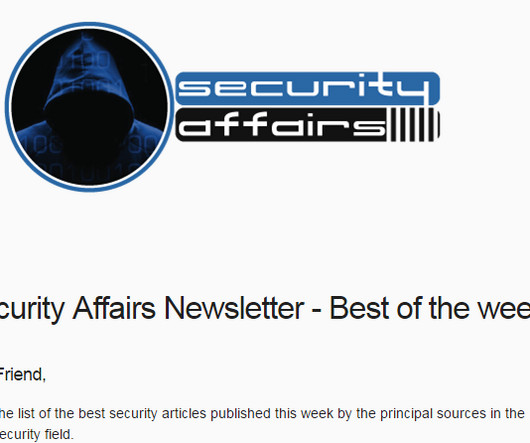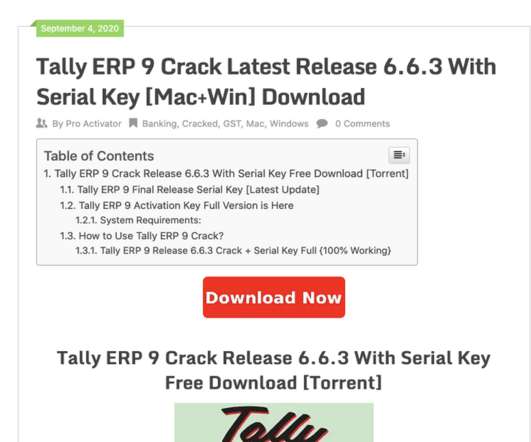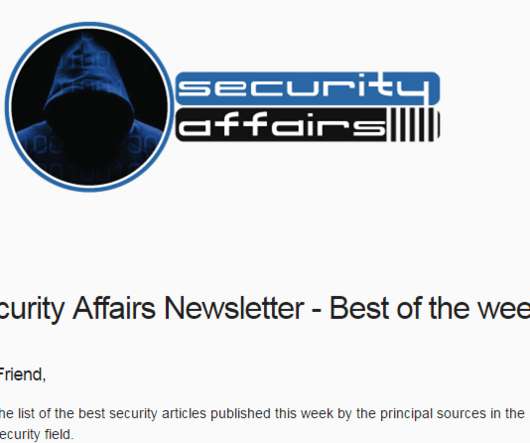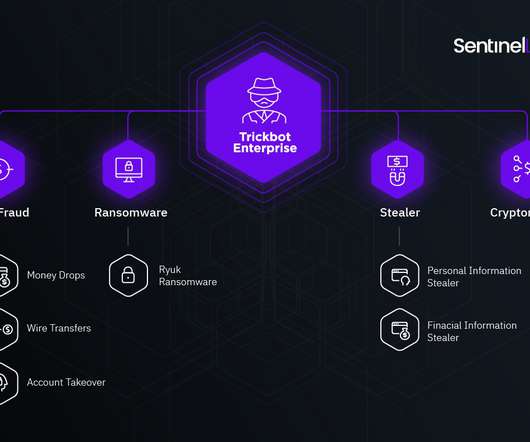Security Affairs newsletter Round 460 by Pierluigi Paganini – INTERNATIONAL EDITION
Security Affairs
FEBRUARY 25, 2024
Iran Crisis Russia-Aligned TAG-70 Targets European Government and Military Mail Servers in New Espionage Campaign U.S.

 tag bitcoin
tag bitcoin 
Security Affairs
FEBRUARY 25, 2024
Iran Crisis Russia-Aligned TAG-70 Targets European Government and Military Mail Servers in New Espionage Campaign U.S.

Security Affairs
MARCH 13, 2022
March 8 – Google TAG: Russia, Belarus-linked APTs targeted Ukraine. Google TAG observed Russian, Belarusian, and Chinese threat actors targeting Ukraine and European government and military orgs. March 6 – Anonymous offers $52,000 worth of Bitcoin to Russian troops for surrendered tank. Is it fake news?
This site is protected by reCAPTCHA and the Google Privacy Policy and Terms of Service apply.

Security Affairs
DECEMBER 7, 2021
TAG also partnered with CloudFlare and others take down servers. Google researchers believe that the operators of Glupteba botnet will likely attempt to regain control of the malicious infrastructure by using the C2 backup mechanism that leverages the Bitcoin blockchain. users were warned via Safe Browsing.

Security Affairs
MARCH 13, 2022
Is it fake news? CVE-2022-0492 flaw in Linux Kernel cgroups feature allows container escape Charities and NGOs providing support in Ukraine hit by malware.

Security Affairs
JUNE 5, 2021
She previously hosted even TrickBot "red" group tag payload on her own website -> see URLhaus [link] [link] pic.twitter.com/qG977wjgLN — Vitali Kremez (@VK_Intel) June 4, 2021. Once infected a system, the ransomware informed victims that their files were encrypted demanded the payment of a Bitcoin ransom to decrypt them.

Security Affairs
NOVEMBER 21, 2022
The Glupteba malware, however, instructs infected computers to look for the addresses of its C2 servers by referencing transactions associated with specific accounts on the Bitcoin blockchain. The blockchain is not controlled by any central authority, and each transaction is disseminated to and viewable by any user on the blockchain.”

Krebs on Security
AUGUST 19, 2020
All of the security researchers interviewed for this story said the phishing gang is pseudonymously registering their domains at just a handful of domain registrars that accept bitcoin, and that the crooks typically create just one domain per registrar account. PROPER ADULT MONEY-LAUNDERING.
Let's personalize your content